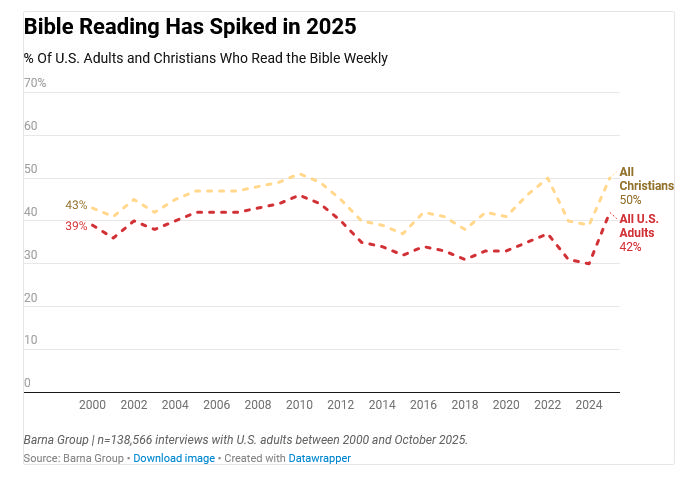Godliness
The Pulse of True Contentment

Godliness, when the Apostle Paul writes of it, is defined as living a life in accordance with God’s will. And what is His will? Most importantly, it is to bring Him glory, which we do through our service and our obedience.
Now, on the topic of godliness, Paul wrote in 1 Timothy 6:6 that “godliness with contentment is great gain.” What did he mean by that? Skimming the surface here robs us of transformative truth. To live it, we must dissect it, piece by piece. And, arguably, the first step in doing so is to unpack this concept of contentment to then observe what it looks like with and without godliness.
- Contentment without Godliness: A Dangerous Mirage
It’s hard enough to be content. Few of us have successfully escaped the temptation to believe “the grass is greener on the other side.” We often live with our minds in the future, just waiting for the day when we get to have this or get to do that. It’s certainly not wrong to look forward to future events or possessions, but if we’re to be content, we must hold any future plan with an open palm, knowing and trusting that God’s ways are higher and better.
But let’s say you’ve cracked the code. You’re content. As the Zac Brown Band song croons, “I’ve got everything I need, and nothing that I don’t.” Sounds noble, right? A pinnacle worth chasing. And yet, contentment without godliness isn’t a victory- it’s a vulnerability. It’s a ticking bomb that few of us bother to notice.
Contentment without godliness has the potential of catapulting us into complacency- a spiritual coma, if you will. If we allow ourselves to be smugly satisfied while untethered from God’s will, we’re setting ourselves up to start shrugging off things that should set our souls ablaze. Sin in our lives? Fine. Brokenness around us? Whatever. A contentment that is not fixed upon doing the Lord’s will may very well put us in a place where we’re fine settling into a cushy existence, content, but only for ourselves.
Contentment without godliness blinds us. As Christians, there are certain areas in which we shouldn’t be content. We have no business being content with those who are lost, staggering in darkness as they reject or remain unfamiliar with the gospel. We can’t sit idly by as believing friends drift from faith, or as the public square parades every worldview except the biblical one.
The world- sick, desperate, broken- is groaning in agony. Yet, too many of us swagger through the wreckage, hoisting a banner of contentment like it’s a trophy for the crowd to admire. But people won’t be helped by our words if they aren’t backed up by our deeds. They don’t need our lip service, they need our hands, our feet, our fight. We’re called to be the body of Christ, but contentment without godliness is not Christlike at all. Rather, it’s a hollow shell that bears little to no fruit. It’s a corpse with no heartbeat. Without that pulse, what could possibly stir us to proclaim the gospel, disciple the lost, or chase after righteousness? Nothing.
Contentment stripped of godliness neuters the Christian, leaving us as impotent as any bystander- paralyzed, when God calls us to charge forward as His own.

- Contentment with Godliness: Hearts Ablaze for Glory
Throughout Paul’s letters, contentment is a topic brought up often. But it’s crucial we acknowledge the common denominator. It’s not that Paul is most concerned with being happy and enjoying a cozy life. Rather, Paul, in all that he did and all that he wrote, was undeniably most concerned with God’s glory. At the heart of true contentment, Paul argued, is Christ.
We see this most clearly in Philippians 4:11-13, when he wrote: “Not that I am speaking of being in need, for I have learned in whatever situation I am to be content. I know how to be brought low, and I know how to abound. In any and every circumstance, I have learned the secret of facing plenty and hunger, abundance and need. I can do all things through Him who strengthens me.” Here’s Paul, sitting in a jail cell, proclaiming that contentment isn’t about circumstances but about Christ’s power surging through him. It’s not passive satisfaction but an unwavering defiant trust, forged in the furnace of suffering.
It was theologian and pastor C.H. Spurgeon who said, “Our infirmities become the black velvet on which the diamond of God’s love glitters all the more brightly.” Perhaps there is no greater example of this than Christ Himself, as He gave His life for His sheep. But we also see this ring true in Paul’s life, as well as each disciple who endured torment to advance Christ’s Kingdom. With every Christian who plants their feet on biblical truth, it’s glaringly clear: our circumstances don’t hand us joy, hope, peace, or contentment. It’s our Lord and Savior- Him alone- the eternal Rock under our heels.
Contentment with godliness is a thankful, praise-filled heart beating with affection for Christ. The Christian is called to be content, but that contentment is only fulfilled when it comes alongside godliness. Only then does it bear fruit, igniting a relentless satisfaction in what exalts God and a holy restlessness toward what defies Him. Rain or shine, the believer who weds contentment to godliness or godliness to contentment stands as a blazing torch, exemplifying the highest calling of all: a life poured out for the King.
Godliness with contentment, as Paul declared, is the greatest gain. As he went on to say, “Pursue righteousness, godliness, faith, love, steadfastness, gentleness. Fight the good fight of the faith. Take hold of the eternal life to which you were called. … He who is the blessed and only Sovereign, the King of kings and Lord of lords, who alone has immortality, who dwells in unapproachable light, whom no one has ever seen or can see. To him be honor and eternal dominion” (1 Timothy 6:11-12, 15-16).
This is no timid truce with the inevitable ups and downs of life. No, this is an anthem that we need Christ, and that He is enough. Spurgeon saw it; Paul lived it; we’re called to it. And this, dear reader, is our call: not to drift into complacency, but to burn with a holy contentment that fuels us to glorify God and fight for His Kingdom. Come what may, the believer who grips this truth doesn’t just endure, they triumph as a living testament to the goodness and glory of the God of Ages, our Rock and our Redeemer.
*Published by The Family Research Council at frc.org (1-800-225-4008; 801 G Street, NW, Washington, D.C. 20001) Authored by Sarah Holliday on April 13, 2025.

Sarah Holliday
Sarah Holliday serves as a reporter for The Washington Stand. She earned her undergrad from Boise State University in Creative Writing and Narrative Arts, as well as a Certificate in Arts and Theology from Reformation Bible College.

















